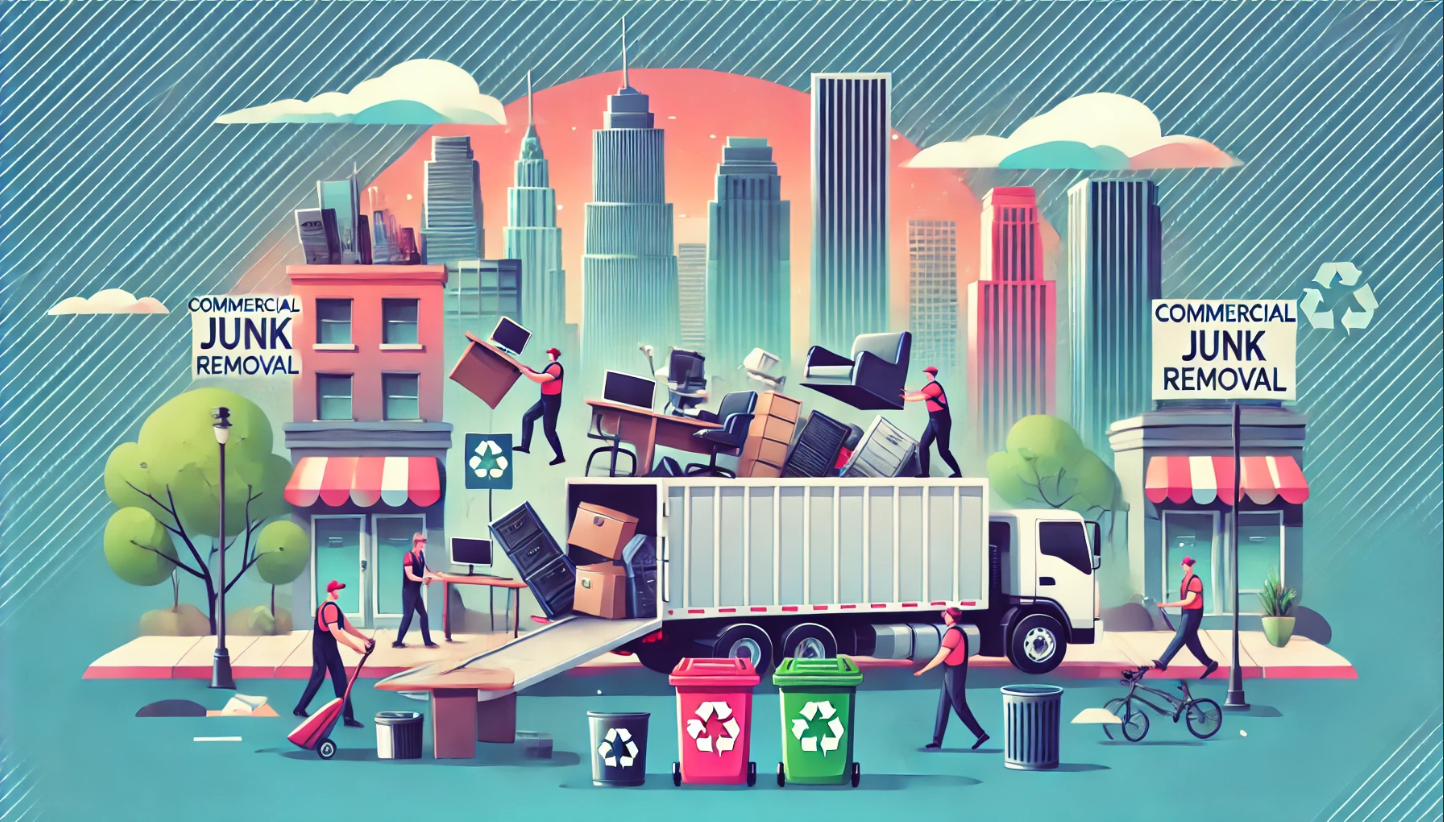
Commercial Junk Removal – Efficient Solutions for Business Cleanouts
Managing a business often means dealing with excess junk—outdated furniture, electronics, or leftover construction debris. Commercial junk removal services simplify the process, providing efficient and eco-friendly solutions tailored to your business needs. Whether you’re renovating an office, clearing out a retail store, or decluttering a warehouse, professional junk haulers can save you time and effort. This guide explores everything you need to know about commercial junk removal, from benefits to best practices.
Why Commercial Junk Removal is Essential
Efficient junk removal is a critical part of maintaining a professional and organized business environment.
Key Benefits:
- Improves Workflow: A clean space boosts productivity and reduces hazards.
- Enhances Professional Image: Clients and employees appreciate a clutter-free, well-maintained workspace.
- Saves Time: Professionals handle sorting, hauling, and disposal, freeing up your team for core tasks.
- Eco-Friendly Impact: Many services recycle or donate items, minimizing landfill waste.
Steps to Effective Commercial Junk Removal
1. Assess Your Needs
- Conduct a walkthrough to identify items for removal.
- Categorize items into recyclable, donatable, and disposable groups.
2. Plan Disposal Logistics
- Schedule removal during off-hours to minimize disruptions.
- Use labeled bins for easy sorting and recycling.
3. Hire Professional Junk Removal Services
- Choose a provider with experience in commercial projects.
- Verify they offer eco-friendly disposal practices.
4. Conduct a Final Sweep
- Ensure all designated items are removed.
- Double-check for hazardous materials that require special handling.
Common Scenarios for Commercial Junk Removal
| Scenario | Examples of Junk | Recommended Solution |
|---|---|---|
| Office Renovations | Desks, chairs, old carpets | Recycling, donation, junk hauling |
| Retail Store Cleanouts | Shelves, mannequins, displays | Professional cleanout services |
| Warehouse Decluttering | Pallets, scrap metal, broken equipment | Scheduled pickups, recycling programs |
| Construction Debris | Concrete, drywall, wood | Dumpster rental or debris hauling |
| Event Cleanup | Decorations, leftover supplies, trash | Junk hauling, recycling |
Eco-Friendly Practices for Commercial Junk Disposal
Sustainability is a growing priority for businesses, and junk removal is no exception.
1. Recycle Materials
- Metals, plastics, and electronics can be sent to local recycling centers.
2. Donate Usable Items
- Furniture, office supplies, and electronics in good condition can benefit local charities.
3. Minimize Landfill Use
- Many professional services aim to recycle or donate 80% or more of collected materials.
4. Properly Dispose of Hazardous Waste
- Ensure items like batteries, chemicals, and fluorescent bulbs are handled responsibly.
How to Choose the Right Commercial Junk Removal Company
1. Look for Experience
- Choose a provider with expertise in commercial cleanouts, such as office and retail projects.
2. Verify Licensing and Insurance
- Ensure the company is licensed and insured to protect against liability.
3. Check Recycling Policies
- Opt for companies with high recycling and donation rates.
4. Compare Quotes
- Request estimates from multiple providers to find the best value.
5. Read Reviews
- Look for positive testimonials that highlight reliability and professionalism.
FAQs About Commercial Junk Removal
1. How quickly can a commercial junk removal company complete the job?
- Most jobs are completed within a day, depending on the volume and type of junk.
2. Are commercial junk removal services eco-friendly?
- Many prioritize recycling and donating items to minimize landfill waste.
3. Can I schedule recurring pickups?
- Yes, many companies offer regular pickups for businesses with ongoing waste needs.
4. How much does commercial junk removal cost?
- Costs range from $200 to $2,000 depending on the size and complexity of the project.
5. What happens to the items removed?
- Usable items are donated, recyclables are processed, and non-recyclables are responsibly disposed of.
Quick & Reliable
We are available 7:00am-7:00pm Monday-Saturday

Rolloff containers and dump trailer rentals designed to meet the specific needs of homeowners and contractors alike
Navigation
Rolloff Containers
Working hours
- Mon - Sat
- -
- Sunday
- Closed
All Rights Reserved | Fleur De Lis Dumpster Rental
